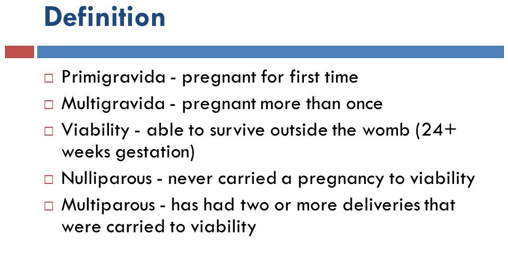At a prenatal visit, a primigravida client confides to the practical nurse (PN) that her partner is abusive.
Which information should the PN provide?
Contact information for a women's shelter.
Safety plan to keep in a purse at all times.
Visit summary documenting the report of abuse.
Paperwork needed to file a restraining order.
The Correct Answer is A
When a primigravida client confides in the practical nurse (PN) about being in an abusive relationship, the primary concern is the safety and well-being of the client and her unborn child.
Providing contact information for a women's shelter is the most appropriate response in this situation. Women's shelters provide a safe haven for individuals experiencing domestic violence and can offer immediate assistance, including shelter, counseling, legal support, and other resources.
In situations involving domestic violence, it is essential to prioritize the safety and well-being of the individual experiencing abuse. Connecting them with resources like women's shelters can provide the necessary support and assistance they need to escape the abusive relationship and protect themselves and their unborn child.

Nursing Test Bank
Naxlex Comprehensive Predictor Exams
Related Questions
Correct Answer is D
Explanation
A. Encouraging oral fluids is an important intervention for a child who has a fever, as it helps prevent dehydration and electrolyte imbalance. However, it is not the priority intervention, as it does not address the risk of infection transmission to other clients or staff.
C. Applying topical calamine lotion may help soothe the itching and discomfort caused by the vesicles, but it is not the priority intervention, as it does not prevent infection transmission or treat the underlying cause of the fever.
B. Administering acetaminophen as an antipyretic may help reduce the fever and provide symptomatic relief for the child, but it is not the priority intervention, as it does not prevent infection transmission or treat the underlying cause of the fever.
D. Initiating transmission-based precautions is the priority intervention, as it protects other clients and staff from exposure to the infectious agent that causes the vesicles and fever. The nurse should wear gloves, gown, mask, and eye protection when caring for the child, and place them in a private room or cohort them with other clients who have similar symptoms.
Correct Answer is B
Explanation
Choice A reason
While thinning of secretions can be a positive sign, it's not always visible. A decrease in peak inspiratory pressure is a more objective indicator of improved airway patency.
Choice B reason.
Peak inspiratory pressure is the maximum pressure required to push air into the lungs. If suctioning is effective, it will remove secretions and reduce airway resistance, leading to a decrease in peak inspiratory pressure.
Choice C reason:
While a productive cough can indicate that secretions are being moved, it doesn't directly measure the effectiveness of suctioning.
Choice D reason:
Flattening of the artificial airway cuff: Flattening of the artificial airway cuff is not a relevant indicator of the effectiveness of suctioning. The cuff of an endotracheal tube is inflated to prevent air leaks around the tube and to maintain proper ventilation. It is not directly related to the effectiveness of suctioning.

Whether you are a student looking to ace your exams or a practicing nurse seeking to enhance your expertise , our nursing education contents will empower you with the confidence and competence to make a difference in the lives of patients and become a respected leader in the healthcare field.
Visit Naxlex, invest in your future and unlock endless possibilities with our unparalleled nursing education contents today
Report Wrong Answer on the Current Question
Do you disagree with the answer? If yes, what is your expected answer? Explain.
Kindly be descriptive with the issue you are facing.
